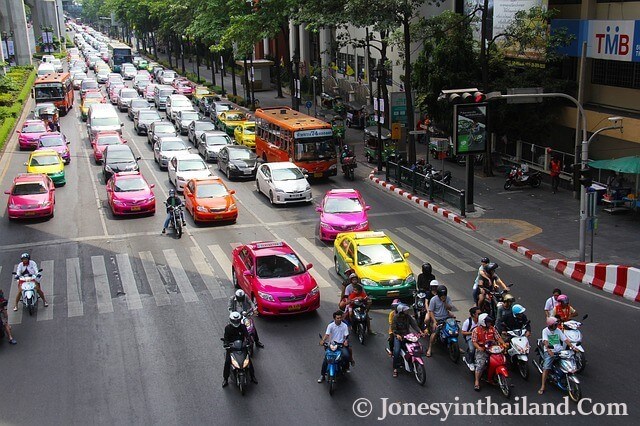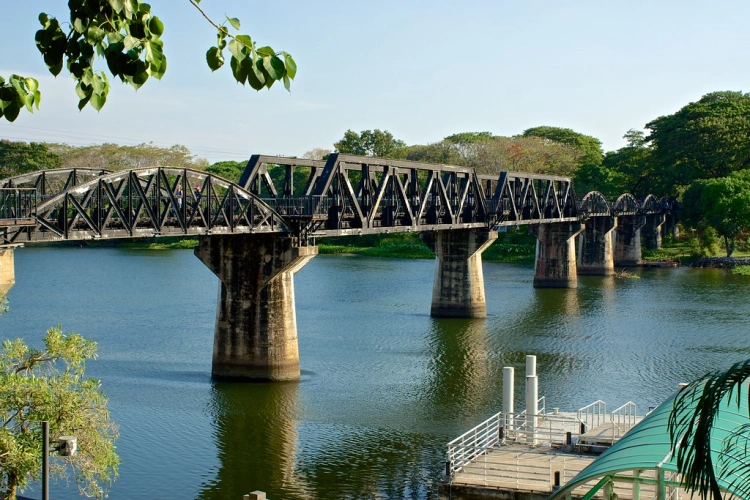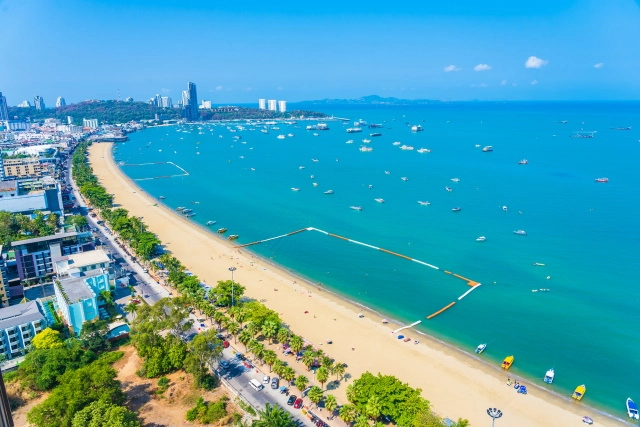How Well is English Spoken in Thailand?
-- Last Updated on January 27, 2023 by Jonesy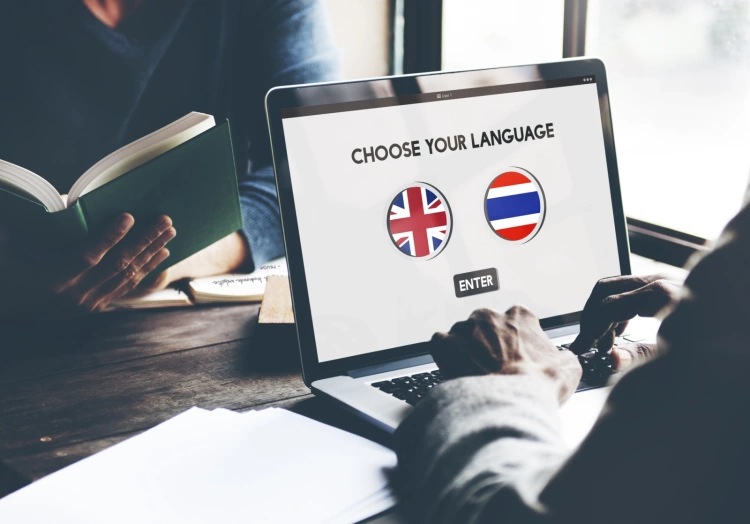
It’s fair to say that your average visitor to Thailand will probably expect to engage in the use of the English language to some extent during their time in the kingdom. A high proportion of these holiday-makers may be non-native English speakers themselves, bringing with them varying levels of competency and native accents.
But how well is English spoken in Thailand? Certainly more than a few holiday-makers in the ‘Land of Smiles’ report the odd communication issue. Many are surprised at the low level of general proficiency or even the total non-existence of any English language skills in society.
This even encompasses ‘service’ sectors like public transport, doctors, dentists, supermarkets, and restaurants, where people may be a little surprised at the reaction when they try to use English. So this is a tropical SE Asian country not renowned for its competence in languages other than its own. In fact, Thailand ranks a sorry 97th on the EF English Proficiency Index.
But things are looking up–it is easier now than ever before to get by in Thailand as the field of modern technology plays an ever-increasing hand in communication and other areas of life. Let’s take a closer look at how well English is spoken in Thailand and some of the recent useful developments that are helping things along.

Who Speaks English in Thailand and to What Level?
In statistical terms the majority of Thai people do not speak English at all. When you consider that 70% of the country is actually rural and largely undeveloped, things start to make more sense as there has never been much of a tourism demand across the north-eastern farmlands. Thus it is largely limited to the city and tourist areas.
The Raw Economics
It all comes down to economics again. Money talks in Thailand, and the gap between rich and poor is too wide to even attempt to describe.
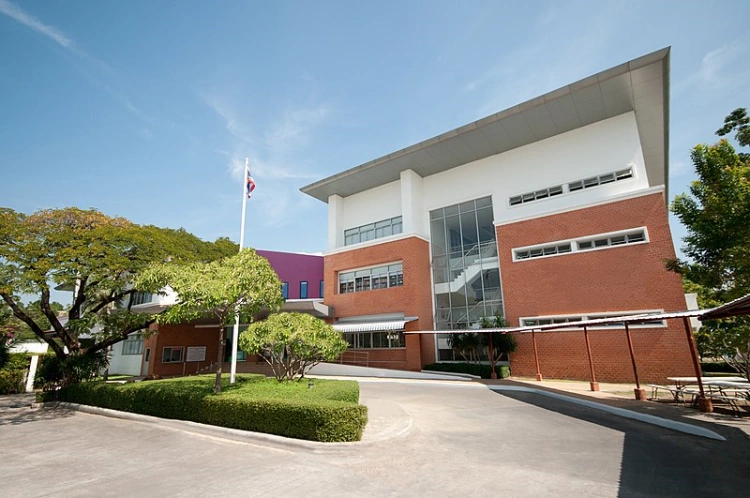
Thus, the moneyed classes are happy to (and do) send their own abroad to study at western schools and universities. It’s either that or one of the top international schools in Bangkok, some of which have fees you wouldn’t believe and cater to the offspring of actors, politicians, and generally super-rich, high-bracket Thais.
The fees at many of these schools are through the roof and would likely be out of reach of the average westerner–just to give a bit more idea. Thus it remains largely with the higher end of Thai society to actually have what could be deemed a fluent grasp of the English language in close to native terms, but this is a very small proportion of the population overall.
And That’s It? No-One Else Learns English?
Heck no. Just the opposite in fact.
As it turns out every single Thai kid studies English classes for at least 10 years of their life, including those in state schools and rural areas. Of course most of them don’t get much opportunity to use the language, and the rote teaching, grammar-focused methodology of the Thai teachers delivering the classes offers little motivation to the youngsters to pursue the language at all.

There are rare examples of rural kids who have either taught themselves purely through interest or they may have gained some kind of scholarship–and there are various competitions and exchange programs offered to state-school attendees, especially those who excel in any particular class.
Aside from that though, it looks a bit like anything close to decent English skills being largely limited to the moneyed class.
It’s not totally black-and-white though and there are also those using English to deal with international customers, visitors and situations. For instance some professionals may land jobs with international companies in Thailand and be required to undertake extra training and tuition in English.
So there is something of a societal cross-section of Thais who speak English with varying levels of fluency. This can be anything from broken, heavily-accented tones to a reasonable level of practical use, to the near native, almost perfect.
These English speakers tend to be in some aspect of the service industry (ahem) and/or tourist sector, and have either majored in English and/or have honed it with regular contact with native speakers.
Where You Come From?
It’s always been a bit of a mystery to me why some native English speakers who head off abroad get seriously-irked when confronted with situations where they are unable to make themselves understood in their native tongue. A tad presumptuous, maybe?
Don’t be that guy in Thailand. Of course the level of English you encounter when in Thailand will depend much on the environment to which you designate most of your time. In a 5-star Beach Resort Hotel you will most likely encounter more-than-competent English communication skills.
The flip-side of that is various aspects of the tourism sector like beaches, transportation, markets, bars, etc, etc, where you are less likely to encounter Thai people fluent in English but who nevertheless will try to use it.
That aside, many of these workers have developed a competent, practical usage of the language from doing so on a regular basis, becoming more familiar with styles and cultures and gaining confidence.
Where is English Most-Spoken in Thailand?
So we’ve already touched on the fact that most rural areas are unlikely to be top of any English class, particularly those in north-eastern and northern regions.
Tourist areas in any region (where tourism exists) are usually places where plenty of English is spoken–even if it’s far from perfect and is limited to whatever service they provide.


Bangkok is considered the English-speaking capital of Thailand, at least by the Thais. Largely the capital is believed to have the best of the Thai education systems–state or otherwise–and there are tons of tuition schools for extracurricular studying which are literally packed with those who can afford them.
What Are Some of the Reasons for the Level of English in Thailand?
The adaptation and use of English in Thailand is a somewhat complex issue.
Unlike some neighbouring countries the Thai nation managed to avoid Western colonisation altogether with a few done deals and thus remained largely unfamiliar with the language and culture that went with it.
Some of the main underlying issues relate to:
- Culture
- Education
- Lack of Opportunity
Without being over-critical it’s easy to observe how there are certainly a few uniquely-Thai characteristics that may tend to inhibit the integration of other languages and cultures. Thai culture is very Eastern-oriented in that it encourages a more introverted approach to life which makes the acquisition of other languages that bit more difficult.
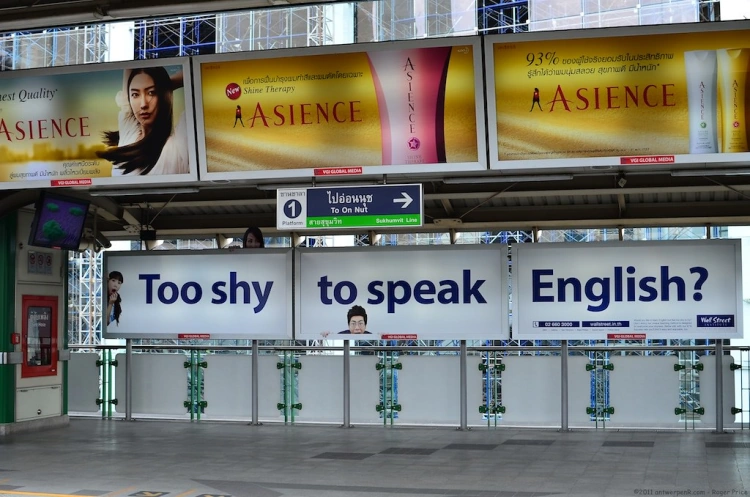
The Thai state education system is also notorious for fairly bludgeoning the students into submission and destroying much of their self-confidence or ability to question anything. Needless to say this has an effect on communication ability, and the majority of high-school-aged students are notoriously shy to speak or ask–even in their own language.
There are also other social and cultural factors which may inhibit language learning such as adherence to seniority and the perceived higher social standing of others etc.
On top of that is a serious lack of opportunity for those that do wish to pursue other languages coupled with sub-standard, outdated rote learning practices. This style of teaching and learning has proven ineffective time and again–specifically with right-brained activities such as languages and other arts.
A Few Tips & Pointers:
- Arm yourself with apps! It’s possible to hail a taxi and order food now in Thailand without actually having to try and speak to anyone. Apps like Grab make more and more things possible, use English, and are user-friendly
- Google translate and other similar apps will help to some degree and usually turn out to operate at about 70% proficiency in translating from one your language to Thai and vice versa.
- Make a few adaptations to your usual speaking in terms of the speed and more emphasis on important words. Slowly, now.
- Learn at least a few useful phrases in the Thai language if you are more than a one-off visitor. Somewhat bizarrely it’s not actually that easy to be understood in Thai either in Thailand (really)! This is largely to do with the fact that most of them are not expecting it and probably don’t recognize it as Thai due to the sound, accent and intonation.
- Thai language is certainly not impossible to learn. However, it would be helped immensely in terms of sound and intonation by spending longer periods in the country (or with native speakers elsewhere) to get used to it.

Mark Philip is a writer and lifestyle enthusiast from the Midlands in the U.K. With a background in martial arts and fitness, Mark upped sticks and headed out to Bangkok to delve a bit deeper into the art of Thai Boxing way back in the 2000s, starting to write initially to fund his daily training and escape the rigours of ESL teaching. Since then Mark has authored e-books, articles, and blogs across a wide range of topics for commercial, educational, factual, health & fitness, lifestyle, wellness, and leisure-based purposes.

